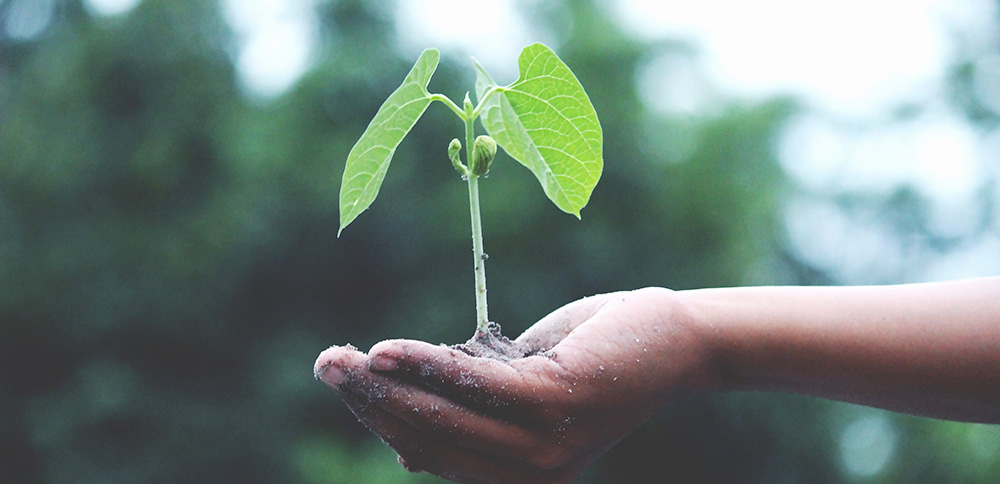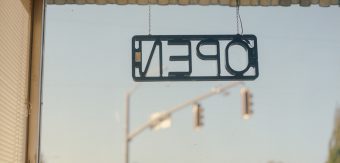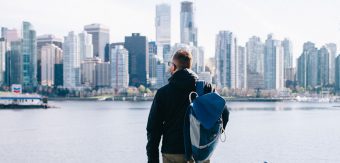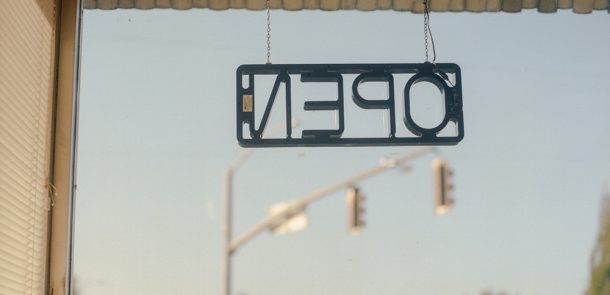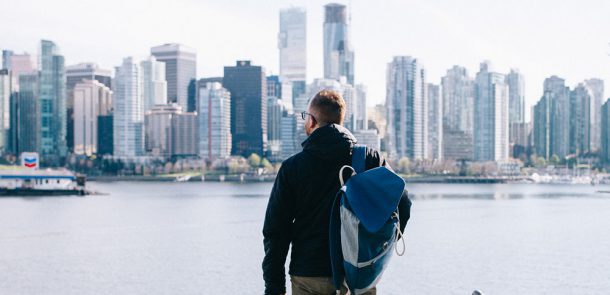COVID-19 plunged all of us into a world of uncertainty. Our world has been turned upside down in just a few short weeks. And for many of us, this health crisis has brought with it intense financial anxieties. There are many ways that COVID-19 has changed our lives. But as we turn our attention to Earth Day, the crisis itself is bringing to light aspects of the changes to our daily lives that are worth celebrating. Some things are possible now that can help us get through this time as well as live happier lives while reducing our environmental footprint.
We find ourselves in uncharted territory: this public health crisis is transforming our daily lives and raising a great many questions about the systems that support us and about their shortcomings, especially for our most vulnerable. Globally, we are in this together even as we experience the pandemic in such unequal ways.
This is a time where we are exploring what really matters – our health, our social connections, trust and service. We find ourselves in a global pause with our economy and our everyday life. The grounded planes and empty streets are contracting our footprint but also with much suffering. As the Global Footprint Network says ‘this is not what we had in mind’ in achieving sustainability – instead we want intentional changes by design. There is anxiety and vast inequality in our experiences, but also reflection on how we can rebuild better – not continuing to over consume our planet’s resources but to support just and well-balanced lives within the means of the Earth.
There are unexpected silver linings as we navigate this time. We are pausing and asking questions about what really matters – our health, our friends and family, trust, service, and our interdependence with nature.
These are the very seeds of lighter living: thriving well within the limits of the Earth. We might be able to embrace some of these experiences even as we mourn the loss of people and jobs, and find ourselves isolated from each other. We can learn from this time and shape a ‘new normal’ as the crisis subsides.
The three opportunities below help us all prioritize compassion, connection and resilience during COVID-19 while also nurturing lighter living.
1. Get your food, drink and goods from local enterprises that align with lighter living.
We know businesses are adapting in light of COVID-19. Supporting these local vendors means that we not only support our local economy, but that we are doing good things for the environment too. Lighter lives are strengthened through local self-reliance, rather than shipping all our consumer goods through global supply chains. Here is a sample of local businesses to support:
- Think Local First and Vancity set up a one-stop website to buy gift certificates from your favourite local, independent businesses in Greater Victoria.
- Nada Zero Waste Grocery (Vancouver), The Soap Dispensary (Vancouver) and the Zero Waste Emporium (Victoria) offer package-free grocery options. Nada is even pre-packaging favourites for pick-up and go. Port Moody Refillery is open for zero waste refills, and offers curbside pickup or local delivery.
- Gomae Meals and Oco Meals deliver healthy and sustainable meals in sanitized zero waste reusable containers.
- For a delicious treat, curbside pick-up is offered by Earnest Ice Cream.
- Bookstores offering delivery include Pulpfiction Books and indigenous-owned Massy Books, both keeping their (virtual) storefronts open.
- Tradle offers a baby clothing subscription service and no-contact home delivery as well as tips about “edutaining” your kids during social distancing.
- Fabcycle is closed for in-person shopping but you can order textile scraps online and pick-up outside the building.
2. Build new (and old) skills: cook, garden, bike, repair!
For those of us who have the space and time, being at home can lead to a lot of home-cooked meals, growing gardens, and fixing things. Lighter living is about consuming less, wasting less, living more and sharing more. When we learn these skills, it not only feels great but we can do things for ourselves that we otherwise might have to buy. We can even learn alongside our kids and friends! Here are some resources for experimenting with practical skills or taking advantage of educational programs:
- Flourist is sharing recipes and promoting home baking, while selling their fresh-milled flour, bread, dried beans, sourdough starter and other locally-sourced produce for delivery or contactless pickup.
- Skills for saving money can align with lighter living, such as cooking from the pantry or with beans, energy-saving tricks, growing your own herbs, basic carpentry, bartering, and more. You can watch DIY videos online, take out a digital book from your library, or explore learning hubs like Mother Earth News which has been teaching self-reliance skills (e.g., canning) for 50 years.
- The Share Reuse Repair Initiative is a resource for Repair at Home. Learn to sew a tear in a jacket, replace a button, fix a bike or mend that squeaky chair. Also, check out the thousands of repair guides at iFixit for everything from electronics to apparel.
- Society Promoting Environmental Conservation (SPEC)’s school gardens programming is online as Neighbourhood Nature School.
- Explore tips for cooking at home while reducing wasted food (including food storage tips) at Love Food Hate Waste – there’s even a Leftover Recipe finder.
- Elements Society’s Zero Waste Place program and Dreamrider’s Planet Protector Academy are free ways for young people to learn about and take action for the environment.
- There are many ways to get (back) on a bike: check out HUB Cycling to find out which bike stores are open near you and tips for being a better cyclist.
3. Boost wellbeing by connecting with nature and each other.
We need to stay apart but also remain socially connected: this is critical for our wellbeing. Lighter living is about finding ways to thrive on our finite planet, and our relationships with our family and friends and spending time in nature bring simple and non-material consumption satisfaction. However, this is a unique crisis: self-isolating with others can be both meaningful and challenging, especially for those tasked with a burden of care and schooling. Some are dealing with job loss and others are working jobs that are suddenly virtual or still outside the home in essential services. Here are some resource to help with nurturing connections:
- SFU Public Square shares resources on community engagement and help including Atira Women’s Resource Society’s call-in line for women who need support.
- Building relationships with our community can be strengthened as we check in with neighbours and talk with friends or family by telephone. Volunteer Victoria helps connect people with those in their community who require assistance during the pandemic.
- Programs that support finding solace and strength in nature include The One Nature Challenge (David Suzuki Foundation) and 30 days of Reconnection (Biomimicry).
- Restoring nature creates space for other species like butterflies or bees to thrive: if you have a garden, consider growing your own food alongside flowering or indigenous plants. The Environmental Youth Alliance offers a bundle of 10 youth-grown native plants in return for support to vulnerable youth through COVID-19.
- Celebrate the heroes in our community, including our frontline workers, by sending them an award through Eclipse Awards: social distancing makes recognition even more powerful.
See what you are able to do in these challenging times. For those of us who can, these actions move us down a path together to emerge differently post-pandemic and transform our daily lives to live well fairly within our ecological means.
Learn more about One Earth here.

